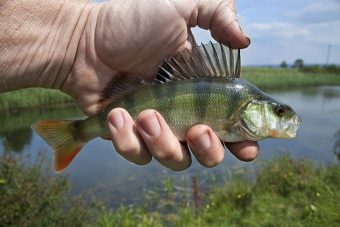
Nano-sized particles of plastic can accumulate in the brains of fish and cause damage and behavioral changes, according to a new study from Lund University.
So, yes, despite earlier arguments to the contrary, it’s clear at this point that nanoplastics can cross the blood-brain barrier — in fish, at the very least, and likely in many other animals as well.
“Our study is the first to show that nanosized plastic particles can accumulate in fish brains,” commented chemistry researcher Tommy Cedervall, of Lund University.
It’s worth remembering here that earlier studies have shown that at least 10% of all of the plastic currently being produced around the world eventually ends up in the oceans — whether intact, or as micro plastics. So, the fact that fish can experience brain damage as the result of the accumulation of nano-plastics is notable.
The press release for the new study provides more: “The Lund University researchers studied how nanoplastics may be transported through different organisms in the aquatic ecosystem, i.e. via algae and animal plankton to larger fish. Tiny plastic particles in the water are eaten by animal plankton, which in turn are eaten by fish.
“According to Cedervall, the study includes several interesting results on how plastic of different sizes affects aquatic organisms. Most importantly, it provides evidence that nanoplastic particles can indeed cross the blood-brain barrier in fish and thus accumulate inside fish’s brain tissue.
“In addition, the researchers involved in the present study have demonstrated the occurrence of behavioural disorders in fish that are affected by nanoplastics. They eat slower and explore their surroundings less. The researchers believe that these behavioural changes may be linked to brain damage caused by the presence of nanoplastics in the brain.”
That would certainly stand to figure. It also makes me wonder what effect nanoplastic pollution might be having on the cognitive abilities of other animals that are exposed to it via their diets. Ahem…
Continuing: “Another result of the study is that animal plankton die when exposed to nanosized plastic particles, while larger plastic particles do not affect them. Overall, these different effects of nanoplastics may have an impact on the ecosystem as a whole.”
That bit there raises some other questions as well…
Source: cleantechnica.com
